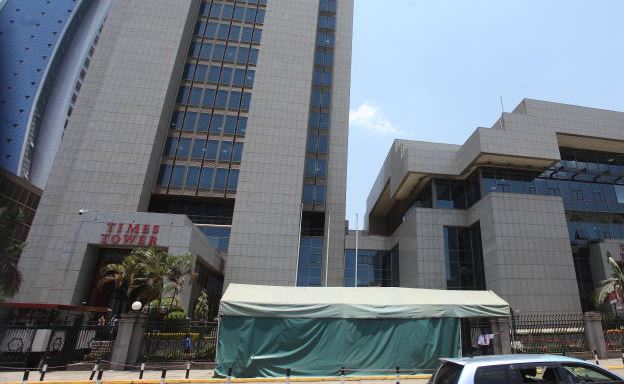Times tower building in Nairobi which hosts Kenya Revenue Offices (KRA). President Uhuru Kenyatta’s grand dream of boosting the manufacturing sector to create millions of jobs for unemployed youth seems to be in shambles.
And now his administration wants out of the plan to support local manufacturing firms with a mixture of tax incentives, low tariffs and bailouts because they have become dead weight.
Several studies have shown that these companies have not increased investments, exports or jobs despite enjoying the tax breaks.
Already, the National Treasury has rolled back several tax holidays enjoyed by some of the firms, including those in the Export Processing Zones (EPZ) after it became apparent that taxpayers were getting a raw deal.
A study commissioned by the Kenya Revenue Authority (KRA) on the economic impact and benefit of the incentives, found that the country lost about Sh216.9 billion between 2014 and 2019 from tax breaks. Read More
Most of these tax holidays did not translate to increased economic growth.
In an interview last year, National Treasury Cabinet Secretary Ukur Yatani said the decision to reverse some of the tax incentives was reached after realising that the benefits were not being passed on to the ordinary mwananchi.
“You just balloon their profits and they are not going to the citizens,” he said.
The World Bank also wants the government to stop pampering non-productive manufacturing firms, noting in a recent study that the country’s policies have inadvertently supported inefficient companies.
According to the bank’s Systematic Country Diagnostic report, not only have these companies been less productive than those in the service sector, but they have also performed dismally compared to their peers in Ethiopia and Ghana.
“This indicates the potential for the existence of policies that favour the survival of inefficient firms in the manufacturing sector more than in the services sector, which suggests that resource misallocation is greater in manufacturing than in services,” read the report.The study also compared the efficiency of Kenyan manufacturers with those in China and India, major competitors for Kenyan firms operating in the global market.These inefficient local manufacturers have continued to absorb billions in tax exemptions.This is money that would have been used to provide key public services such as education, health, security, water and sanitation.Local manufacturers, through the Kenya Association of Manufacturers (KAM), insist the government’s support has been half-hearted; that the government has given with one hand and taken with the other by, for instance, introducing […]
